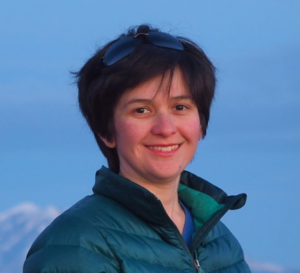
“Alice was something that showed me that programming was more than just words on a screen.”
In honor of International Women’s Day, the Alice team is proud to share ‘3 Questions’ with Rachel Fenichel, who describes her job as a lead ‘Block Builder’ at Google. We talked to Ms. Fenichel about what inspires and motivates her; her history with the Alice project; and what advice she has for young people interested in exploring the vast world of STEM.
Q: What was it that inspired your first explorations into the world of computer science?
A: I am lucky to have grown up with parents who were invested in my education. I think I got a lot of exposure as a kid. My dad would build computers and he would have my brother and I helping him out with that. He also showed us things like BlueJ for learning Java and some of the [LEGO] MindStorm stuff, and Delphi; but this was all before high school and none of it stuck really hard. In high school I took AP computer science, and that’s actually where I was exposed to Alice. It was something I took because my school had that class; I was looking for something to fill up my schedule and it was there. It was then that computer science started to stick for me, and I wasn’t until I was at Stanford’s Summer Engineering Academy that it clicked. That’s when my ‘this is a class I’m doing because I do school and this is something I know how to do’ attitude changed to ‘This is cool, this is something that I want to do.’
Q: What was your experience using Alice like when you were introduced to it?
A: I remember it being very different from the rest of the things I was introduced to at the time as part of my computer science class. Alice was 3D, and it was something that showed me that programming was more than just words on a screen. I was able to see how what I changed in the code had an impact on the Alice environment, and I think that’s a really big and important jump from teaching things like algorithms. As it happened, I really liked the algorithms; but as a result of my educational exposure and the way people around me think about education, I hold the idea very closely that it’s important to have multiple pathways into any given topic. That’s how I see Alice. It may not be the perfect tool for helping me visualize every computer science concept, but it’s something that myself and others at Blockly have fond memories of using.
Q: What is the message you’d like to share with young creators?
A: Computer science and programming are for doing things, and you get to choose what you do. No one gets to tell you what you should and shouldn’t do [with programming]. The same way that writing is for many things; whether you’re jotting notes, writing essays or letters or poetry, you’re writing. The same is true for computer science – you have the ability to create something more than just what is there on the screen.

